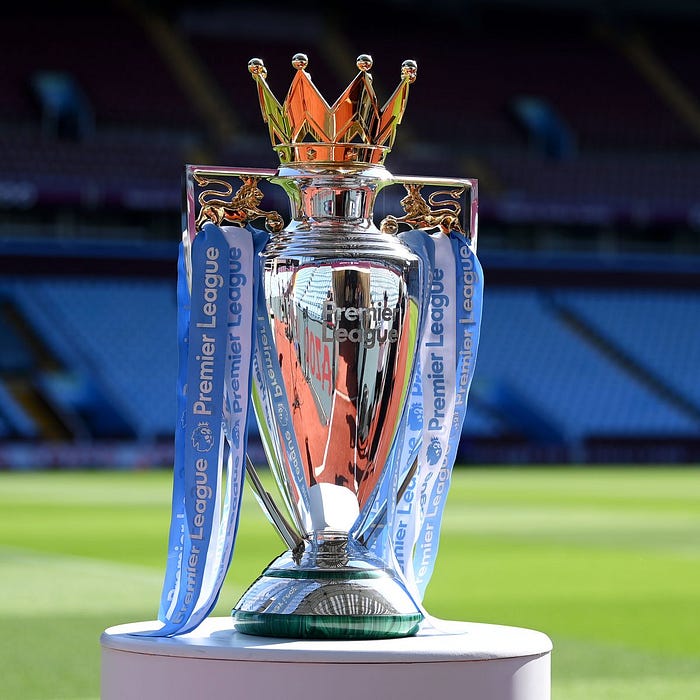
The Premier League, established in 1992, has grown into the most popular and lucrative football league in the world. Its journey from a newly formed competition to a global phenomenon is marked by significant milestones, influential figures, and strategic decisions that have propelled it to the pinnacle of world football. This article explores the evolution of the Premier League, detailing the key factors that have contributed to its immense popularity.
The Birth of the Premier League
In the early 1990s, English football was in dire need of revitalization. The top clubs in the Football League First Division decided to break away and form a new competition, aiming to capitalize on the increasing commercial potential of the sport. Thus, the Premier League was born in 1992, with the objective of improving the quality of football and enhancing the spectator experience.
Key Milestones in Premier League History
Formation and Inaugural Season (1992–93)
- The first Premier League season featured 22 teams, with Manchester United emerging as the inaugural champions. The league’s formation marked the beginning of a new era in English football, characterized by increased professionalism and commercial opportunities.
Reduction to 20 Teams (1995)
- In 1995, the Premier League reduced the number of teams to 20, aligning with other major European leagues and ensuring a more competitive fixture schedule.
Introduction of TV Deals
- The Premier League’s partnership with Sky Sports revolutionized football broadcasting. The lucrative TV deals brought unprecedented revenue to the clubs and increased the league’s visibility, attracting a global audience.
International Expansion
- The league’s popularity soared internationally, with broadcast deals covering over 200 countries. The influx of foreign players and managers further enriched the league’s appeal, making it a melting pot of football talent.
Financial Fair Play and Commercial Success
- The implementation of financial fair play regulations ensured a more sustainable financial model for the clubs. The Premier League’s commercial success continued to grow, with sponsorships, merchandise sales, and global marketing contributing to its financial dominance.
Influential Figures in Premier League History
Sir Alex Ferguson
- The legendary Manchester United manager played a pivotal role in the league’s early dominance. Under his leadership, United won 13 Premier League titles, establishing themselves as a global powerhouse.
Arsène Wenger
- Wenger’s tenure at Arsenal brought innovative footballing philosophies and a focus on youth development. His ‘Invincibles’ team of 2003–04 remains one of the greatest in Premier League history.
Roman Abramovich
- The Russian billionaire’s acquisition of Chelsea in 2003 transformed the club into a major force. His investment brought success on the pitch and influenced the financial landscape of the league.
Pep Guardiola and Jürgen Klopp
- These modern-day managers have introduced revolutionary tactics and styles of play. Guardiola’s Manchester City and Klopp’s Liverpool have set new standards of excellence, captivating fans worldwide.
Factors Contributing to Popularity
TV Deals and Broadcasting
- The Premier League’s strategic TV deals have been instrumental in its growth. The quality of broadcasts, innovative coverage, and global reach have made it accessible to millions of fans.
International Fan Base
- The league’s appeal transcends borders, with millions of fans supporting clubs from different parts of the world. The diverse fan base has been crucial in building the Premier League’s global brand.
Competitive Balance
- Unlike other leagues dominated by a few teams, the Premier League is known for its unpredictability and competitive balance. Any team can beat any other on their day, adding to the excitement and drama.
Commercial Success
- The Premier League’s commercial strategies, including sponsorship deals, merchandise sales, and global marketing campaigns, have contributed significantly to its financial success. The league’s branding is recognized worldwide.
Social Media and Digital Presence
- The Premier League has embraced digital transformation, using social media and online platforms to engage with fans. This digital presence has enhanced fan interaction and expanded the league’s reach.
Conclusion
The evolution of the Premier League is a testament to strategic vision, innovation, and the universal appeal of football. From its humble beginnings to becoming the world’s most popular football league, the Premier League’s journey is marked by significant milestones, influential figures, and strategic decisions that have shaped its success. As the league continues to grow, its impact on global football remains unparalleled, captivating fans and setting new standards in the world of sport.
For more information please click here



0 Comments